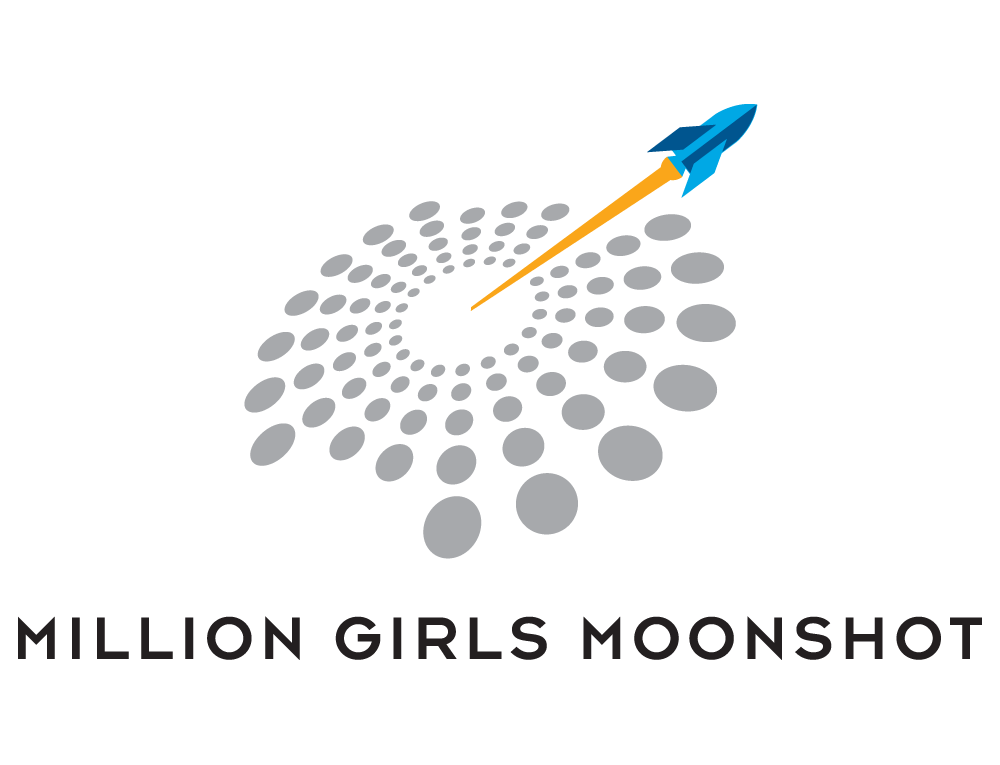By the Million Girls Moonshot Advisory Board and published in the Omaha World-Herald. Sasha Forsen, Bio Nebraska Assistant Director, serves on the Million Girls Moonshot Advisory Board.
The number of women pursuing Science, Technology, Engineering and Math (STEM) careers doesn’t match the demand for these competitive, well-paying jobs. Out of 58.9 million U.S. college-educated workforce candidates, half of them are women.
In STEM, however, women appear far less often, particularly in engineering, where they make up only 16%. Meanwhile, in computer and mathematical sciences, women account for just 27%.
Women of color, including those of Black and Latinx backgrounds, appear even less throughout these career paths, accounting for about 2% of STEM professionals.
Still, women’s presence in STEM remains essential, as the field is burgeoning. The U.S. job market needs roughly 1 million more candidates to fill these crucial roles in the next decade than it can produce.
What will we do with these numbers? We’ll shoot for the moon. Nebraska Children and Families Foundation’s initiative Beyond School Bells, Nebraska’s after-school network, has joined forces with partners across the nation. As an organization that envisions a thriving Nebraska, and as women who are proponents for equity in STEM, we aim to transform this data.
Although we have a long way to go, these current times call for change. In the wake of the pandemic, schools have closed, and STEM learning experiences have fallen by the wayside, especially for girls of color.
Together, we’re working toward a future that calls into play the next generation of engineers, inventors and innovators. To close the gender gap, we need a “moonshot” movement — a collective, national call-to-arms where public-private partners work toward a better, brighter future.
In this spirit, we introduce you to the Million Girls Moonshot. Across the U.S., technology corporations, schools and nonprofits — including the Intel Foundation, STEM Next Opportunity Fund, the Gordon and Betty Moore Foundation, Beyond School Bells, the Charles Stewart Mott Foundation, NASA, and many more organizations — are leveraging their strengths in the name of enhanced equity, gender, racial and socioeconomic diversity in STEM.
When we talk about “shooting for the moon,” we specifically mean the distance we’ll go to close this gender gap. Without a diverse workforce, businesses may fail, and strategies aren’t as innovative.
There’s a reason for this collaboration — we intend to include girls in all communities by working with after-school programs in every state. Our objective is to reach 1 million girls, especially those of color, with quality STEM learning experiences that also will lead to opportunities to forge relationships and careers with mentors and role models alike.
Given these developments, our hopes are high. The Million Girls Moonshot has arrived at exactly the right time for youth in our state. Although schools have endured undeniable challenges due to the pandemic, a valuable lesson has emerged. The pandemic-driven reliance on virtual learning is a reminder that STEM isn’t just the wave of the future but the wave of the present as well.
For Beyond School Bells and partners, after-school hours are an ideal setting for STEM. After-school programs have developed a strong track record with STEM, giving children the sleeves-rolled-up, hands-on experiences so critical to learning in this area.
Picture the moon. It’s smaller than the Earth yet shows up every night to shine. It controls the tides and waxes and wanes. The moon even stabilizes our planet and controls our climate. Finally, every year, the moon is always moving a little farther away from the Earth.
We still want to shoot for it. Every goal is challenging, especially in increasing the number of women in a field where their presence is disturbingly scarce. But we’ve gathered our power in numbers and in the form of diverse schools, businesses, and nonprofits to go the distance.
This next generation of professional candidates hasn’t endured an easy time. These disparities give us more reason to push through challenges by sparking girls’ interests in this in-demand field. Once our new generation of girls can engage in technological skills and rigorous educational opportunities, the moon is just the beginning.
For more information or to join the Million Girls Moonshot, visit go.pardot.com/l/907182/2021-03-03/6v4f.
The members of the Million Girls Moonshot Advisory Board are Amanda Gutierrez, high school student; Angela Reinders, Union Pacific; Anna Wishart, District 27 Nebraska state senator; Carrie Lienemann, NPPS Kids Klub; Dr. James Blake, Lincoln STEM Ecosystem co-chair; Emily Mwaja, Girls Inc. of Omaha; Jennifer Creager, Greater Omaha Chamber; Juli Thelen, Behlen Mfg. Co., Women in Manufacturing; Julie Heinrich, animal health industry professional; Julie Sigmon, Omaha STEM Ecosystem; Kathleen Lodl, 4-H; Kaylie Hogan-Schnittker, LPED, Lincoln STEM Ecosystem co-chair; Kristen Hassebrook, Nebraska Chamber; Lauren Mott, Beyond School Bells, Nebraska Children and Families Foundation; Michelle Clark, Union Pacific; Sasha Forsen, Bio Nebraska; Shelley Henderson, READY Nationwide; Tammy Carlson, Lozier, Women in Manufacturing.

